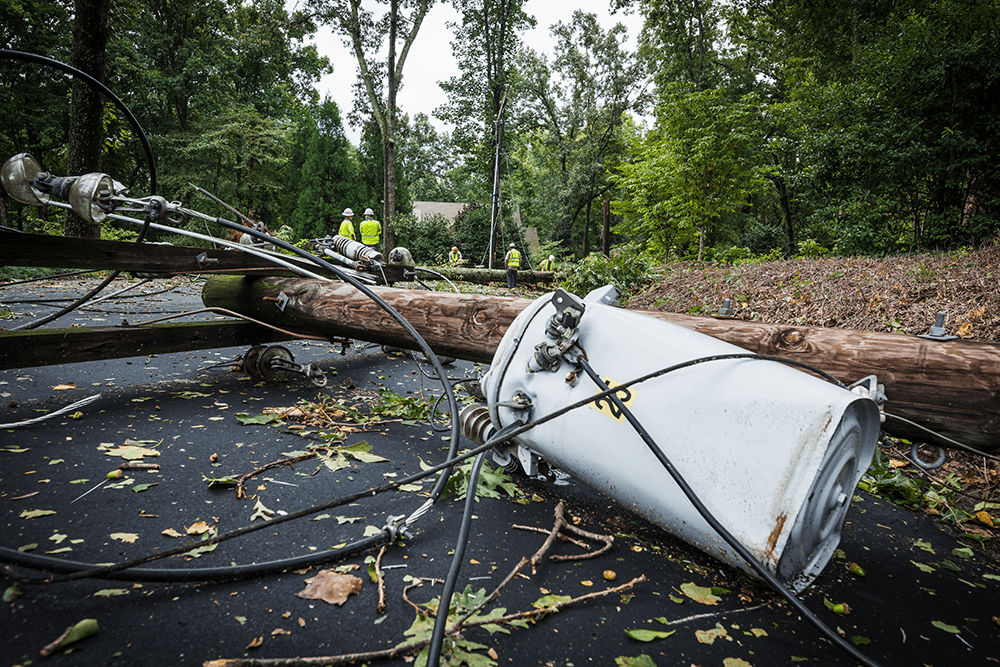Power Outages
-

Beyond the immediate threat to those living in its path, there is a potential for widespread power outages when a major storm strikes. Flooding, high winds, and falling trees threaten power lines and other critical infrastructure. During storms, it is normal for electricity to go out unexpectedly. Still, extended outages can have serious implications such as disruption of communications, food spoilage, water contamination, and prevention of medical devices.
How to Prepare for Power Outages
-
Take inventory of the devices in your home that rely on electricity and keep a stock of batteries or other alternative power sources. Have a plan in place for any medical devices or refrigerated medicine if you lose power. Keep nonperishable food and water on hand. When a major storm approaches, check power outages in your area frequently.
What You Should Do During a Power Outage
-
Keep all refrigerators and freezers closed to preserve food and use coolers full of ice if necessary. If you plan to use alternative power sources, install carbon monoxide detectors with battery backup in your home. Avoid carbon monoxide poisoning and only use generators, camp stoves, and charcoal grills outside and at least 20 feet away from any structure. Read more generator safety tips at Energy.gov.
What You Should Do After Power Returns
-
Throw away any food exposed to temperatures 40 degrees or higher for two hours or more or that has an unusual odor, color, or texture. If the power is out for more than a day, discard any medication that should be refrigerated unless the drug’s label says otherwise and consult your doctor or pharmacist immediately for a new supply. For more information regarding safety in power outages, visit Ready.gov. Subscribe to ReadyHarris Alerts to monitor developing storms and flood conditions in Harris County.
Power Outage Resources
-
View map of power outages
Track tropical weather
(nhc.noaa.gov)Check school closures
View traffic and road closures
(houstontranstar.org and drivetexas.org)

